
The key to saving red pandas is sustainable livelihood initiatives that help local people who are most in need, which includes women.
Our community-based conservation programs began in Nepal's Panchthar-Ilam-Taplejung (PIT) corridor.
This area has the country's densest population of red pandas, is part of the Kangchenjunga Singhalila Complex — one of the most biologically diverse places on earth — and is where we are establishing the PIT Red Panda Protected Forest: the world's first protected area dedicated to red pandas!
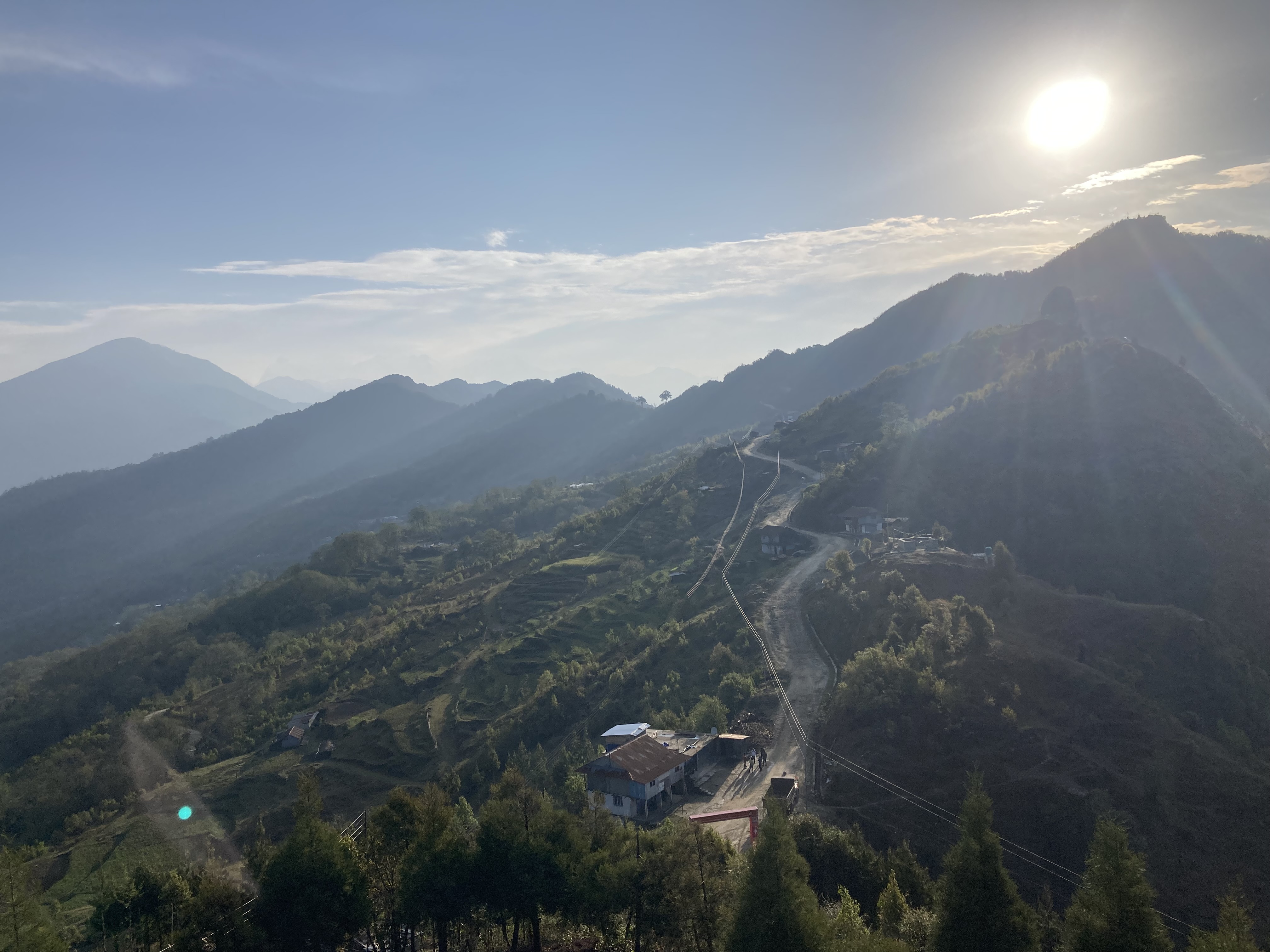
Rural village and Himalayan forest in Taplejung district, Nepal.
Unfortunately, habitat loss and human encroachment threaten the forests and wildlife of the PIT corridor. Red pandas and other species are also vulnerable to poaching and illegal trade.
Local poverty is behind deforestation and poaching. Gender inequality compounds this issue for women in the rural communities of the PIT corridor, where cultural barriers limit a woman's role to household and child-rearing responsibilities. The result is intergenerational poverty and limited education, economic, and leadership opportunities for local women.
Thanks to your support, we are helping local women in Nepal establish economic independence through our Forest Guardian program and other sustainable livelihood opportunities. In 2023, we recruited four female Forest Guardians in our new districts, Solukhumbu, Bhojpur and Khotang, which means there are now 17 women on our national team! We also prioritize skill-building training in areas of high demand, like nettle fiber extraction, sewing, and rug weaving.
In 2021, we organized a training workshop for the local people of Taplejung district on nettle fiber refining and weaving. The goal was to develop the capacity for micro-enterprises among disadvantaged households living in red panda range.
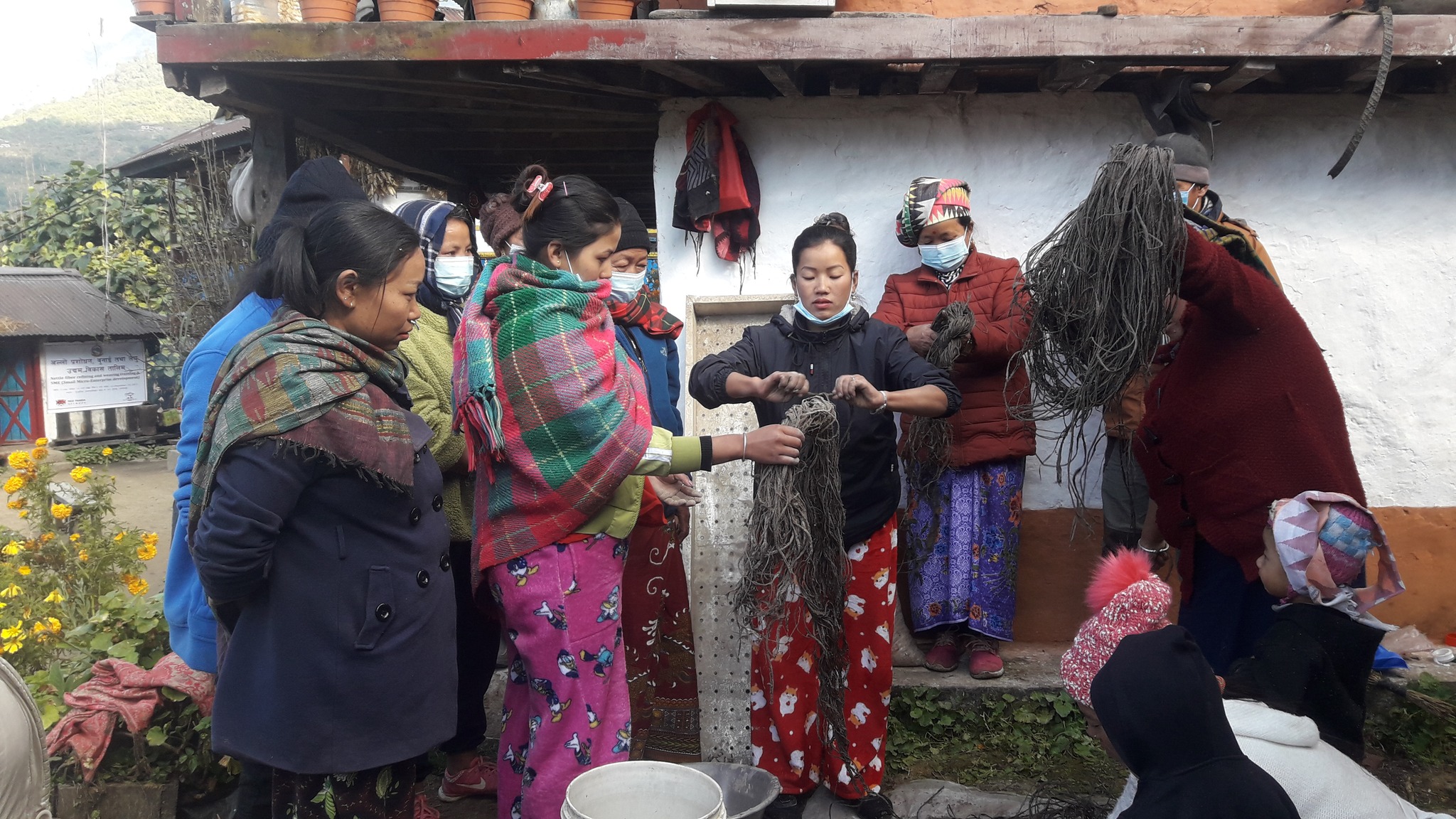
Educating local people on nettle fiber refining and weaving in Taplejung.
Workshop participants were educated on the economic value of the nettle plant and then learned cultivating and stem harvesting procedures. A hands-on demonstration of the boiling, beating, and drying process was provided; participants received the machines used to boil and beat nettles after the training.
Why nettle fibers? Because harvesting and processing require minimal capital, simple technologies, and locally available and sustainable resources. The products weaved from nettle fibers can then be sold, providing sustainable revenue (support a nettle-fiber production and extraction training here!).
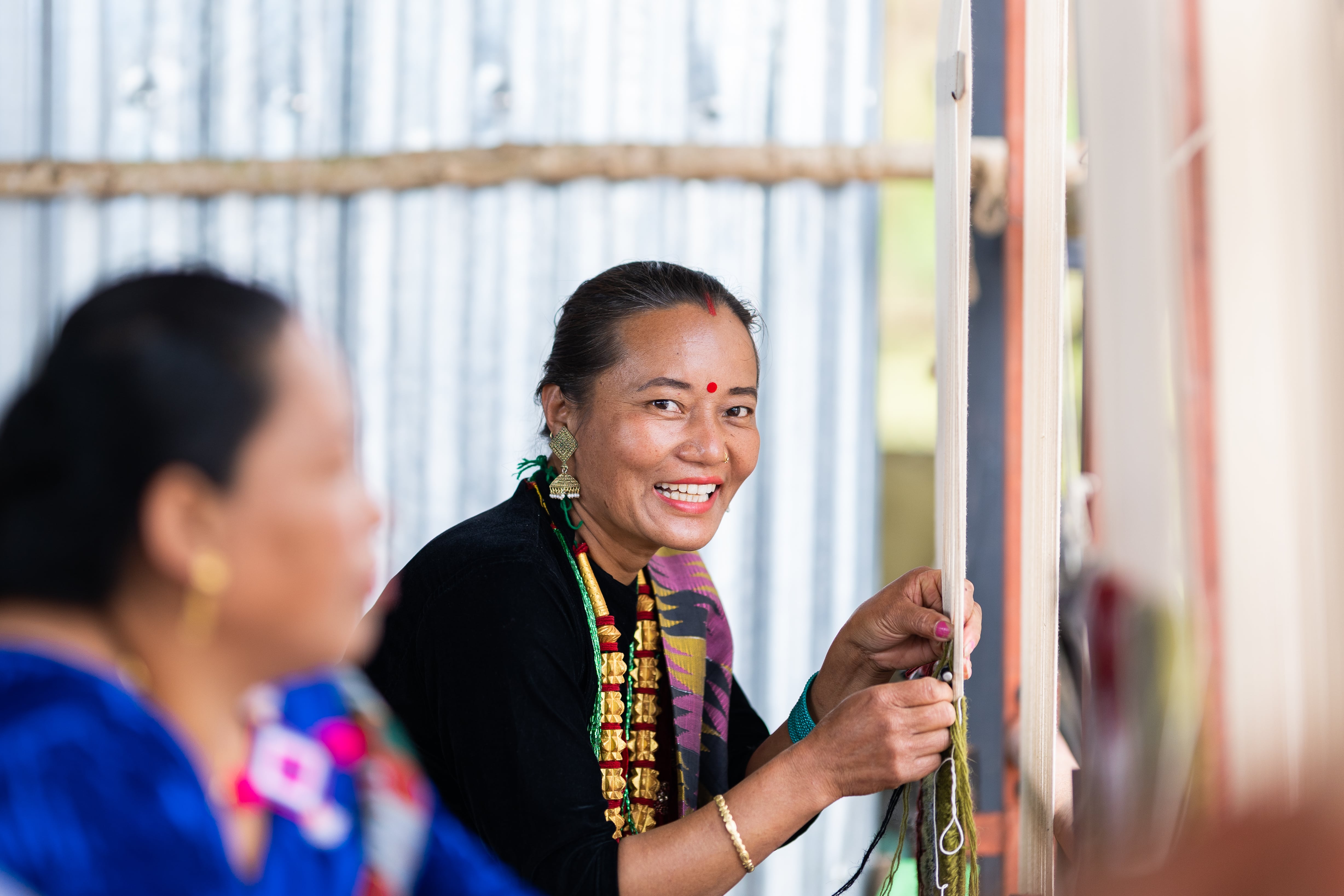
Rug weaving workshop participant in Ilam district, Nepal.
This year, seven local women participated in a 30-day training on rug weaving that we organized in Ilam district. Participants learned about loom setup, wool/thread material selection, rug weaving techniques, and design.
We also organized a sewing and tailoring training for women in Jajarkot district in 2022.
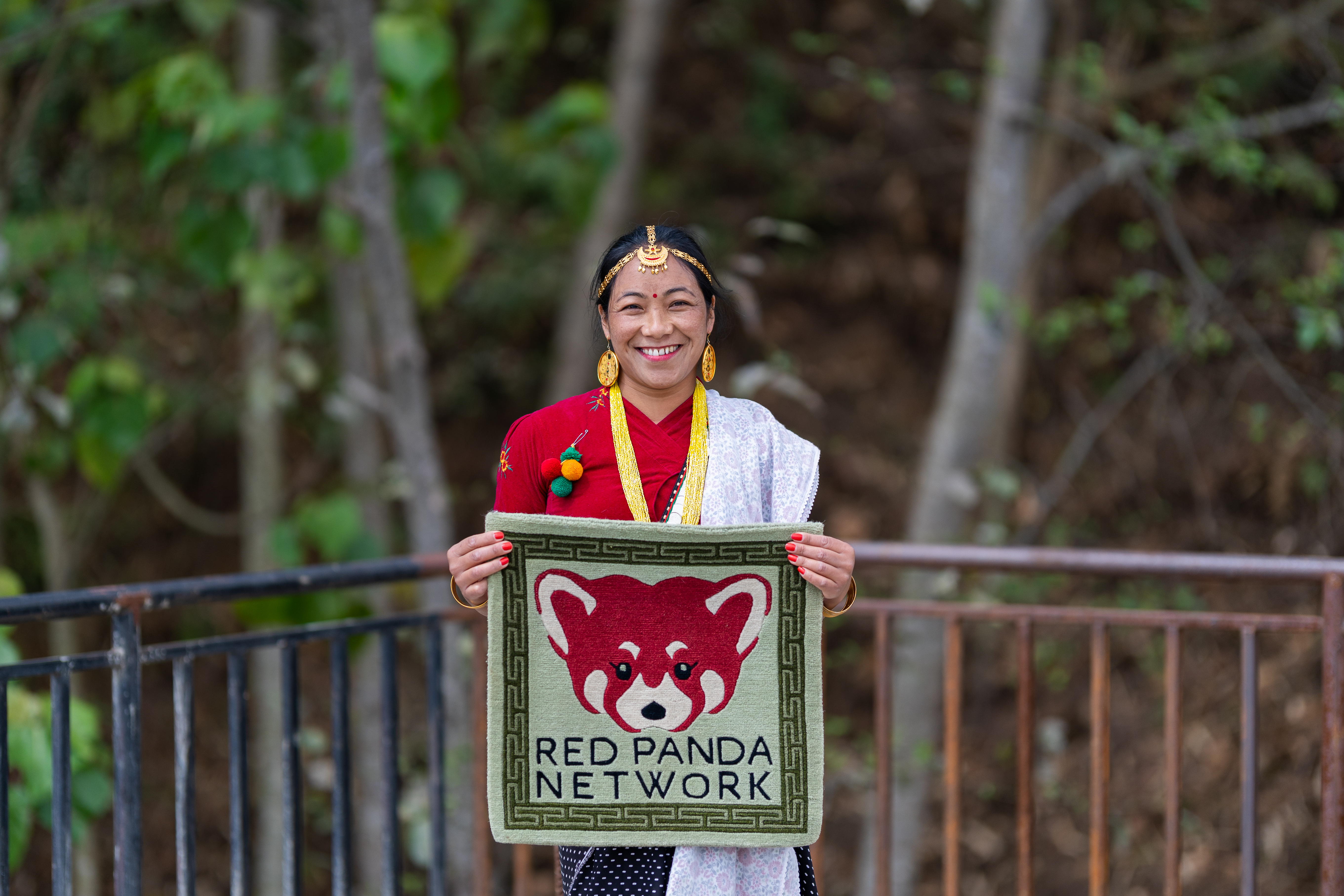
Local woman displaying the beautiful rug she crafted during the training.
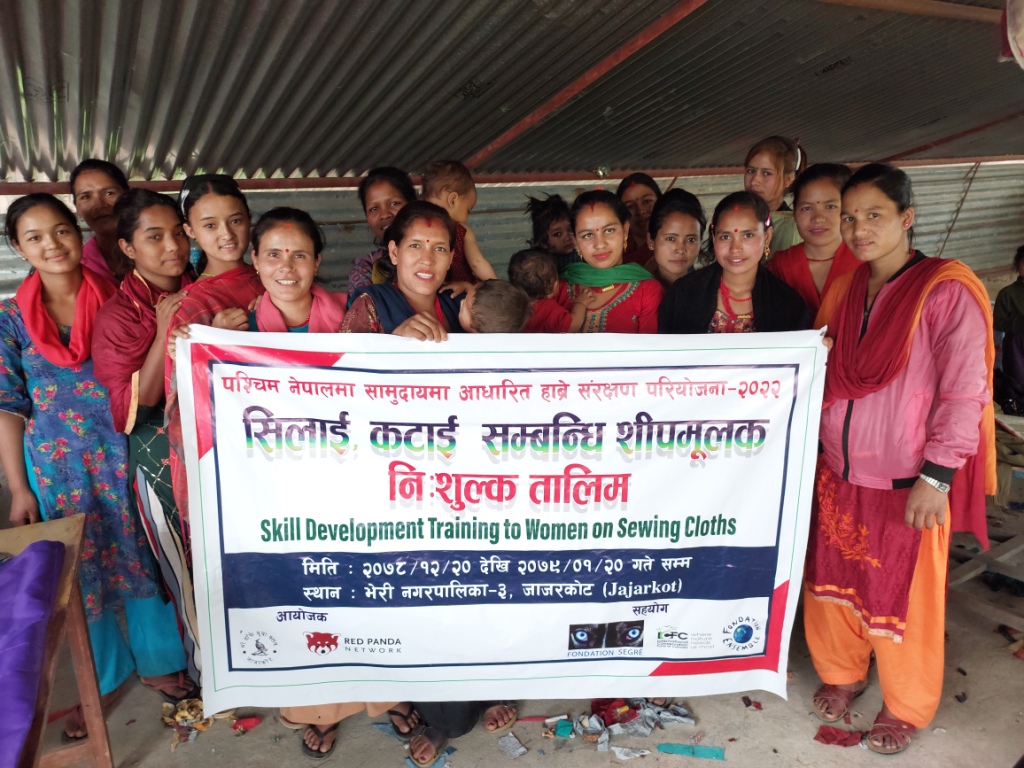 Participants of skill development workshop in Jajarkot district, Nepal.
Participants of skill development workshop in Jajarkot district, Nepal.
Dawa Phutik Sherpa facilitated the training in Ilam. At the end of the event, we distributed the weaving tools and materials to trainees. The goal is for them to be able to continue to practice, refine their skills, and produce rugs that RPN will later purchase. So far, 84 rugs have been produced by training participants!
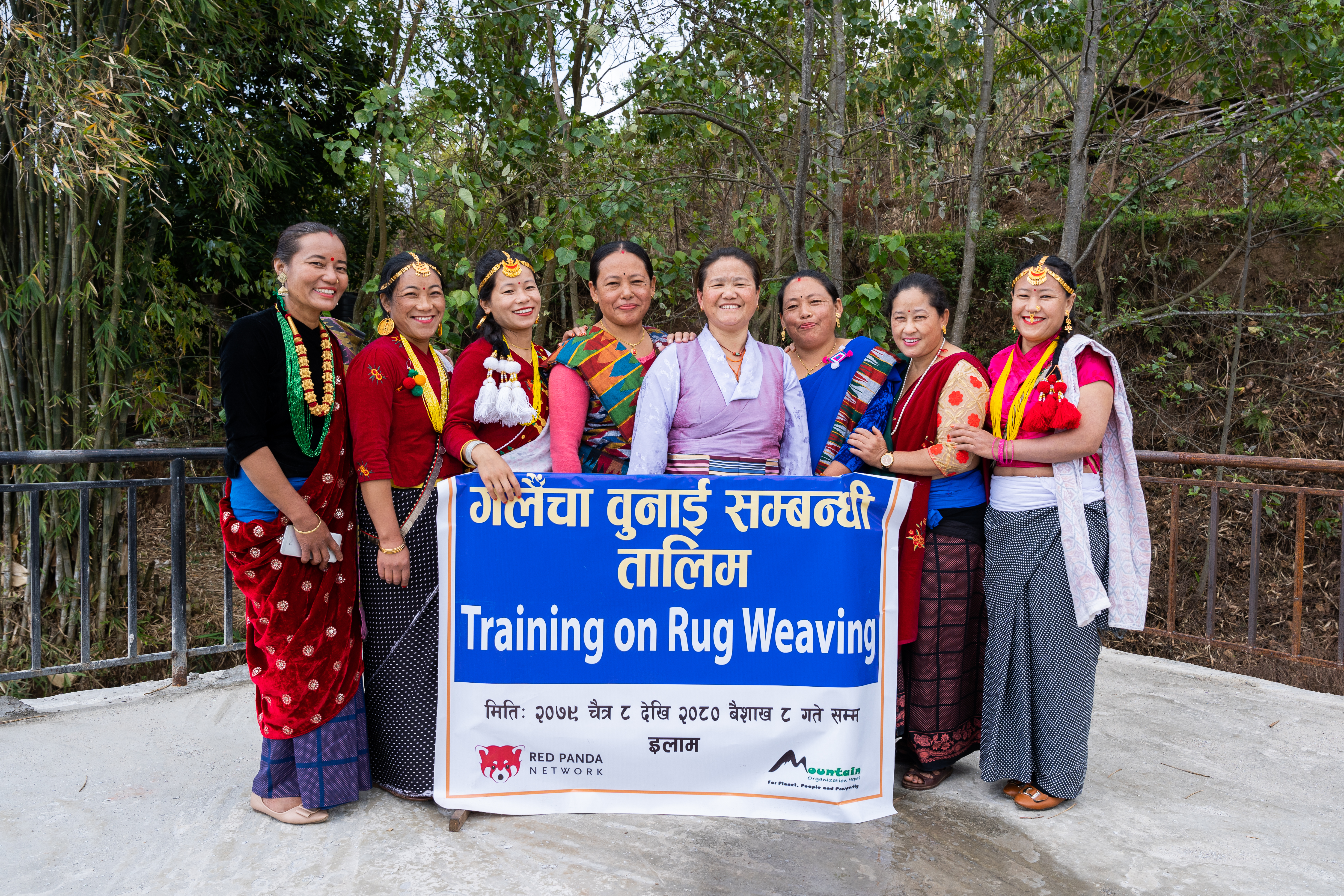 Participants of rug weaving workshop in Ilam district, Nepal.
Participants of rug weaving workshop in Ilam district, Nepal.
“Participating in this training and producing rugs on my own has helped me earn income to pay rent and my children's education costs,” says one of the participants.
These critical alternative income programs for women in Nepal are possible thanks to our amazing monthly donors, whom we proudly call Panda Guardians!

Want to make a difference for gender equality and red panda conservation in Nepal right now? Here are two ways:
1. Become a Panda Guardian today and join a team of passionate donors dedicated to investing in sustainable livelihoods for the people who protect red pandas!
2. Check out our economic empowerment for women campaign! Your donation will provide a nettle-fiber production and extraction training to support sustainable livelihoods for local women while fostering red panda conservation. Thanks to our conservation partner, Henry Vilas Zoo, your donation will be matched x2!
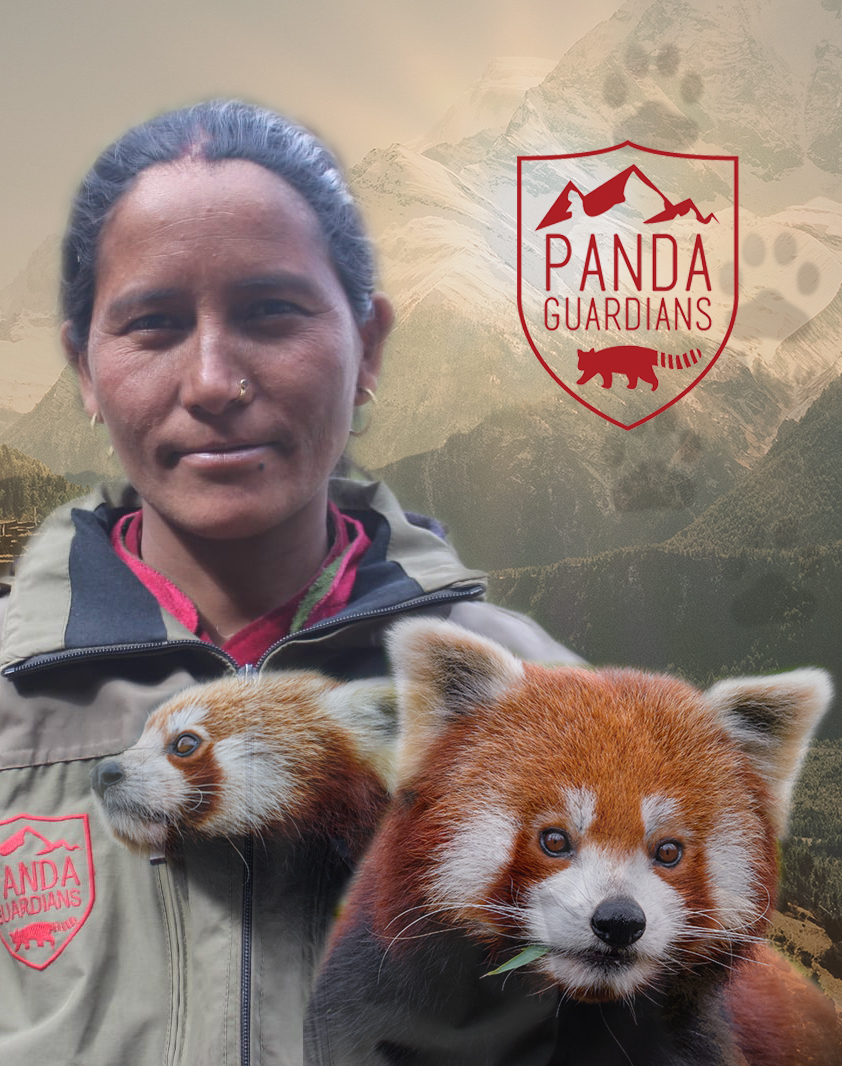 Design by Laura Siu.
Design by Laura Siu.
